Protesters went to meet with Chief Best at her home. But then her neighbors emerged

Down a dead-end road in rural Snohomish County, where American flags fly, a group of young protesters, led by Black women, drove in.
This was not a typical route for these protesters, who call themselves the Everyday March. This group more often parades down city streets where Seattle politicians live, to engage them in discussion.
But Carmen Best, the Seattle police chief, and the next stop on their tour, lives out here, an hour north of Seattle.
Best is a woman of seeming contradictions: She says she wants radical change but opposes defunding the police; she is a Black woman who calls the death of George Floyd a murder, but who also allows her officers to spray demonstrators with tear gas and rubber bullets.
On Saturday night, the Everyday Marchers wanted to discuss defunding the police, one of their five goals.
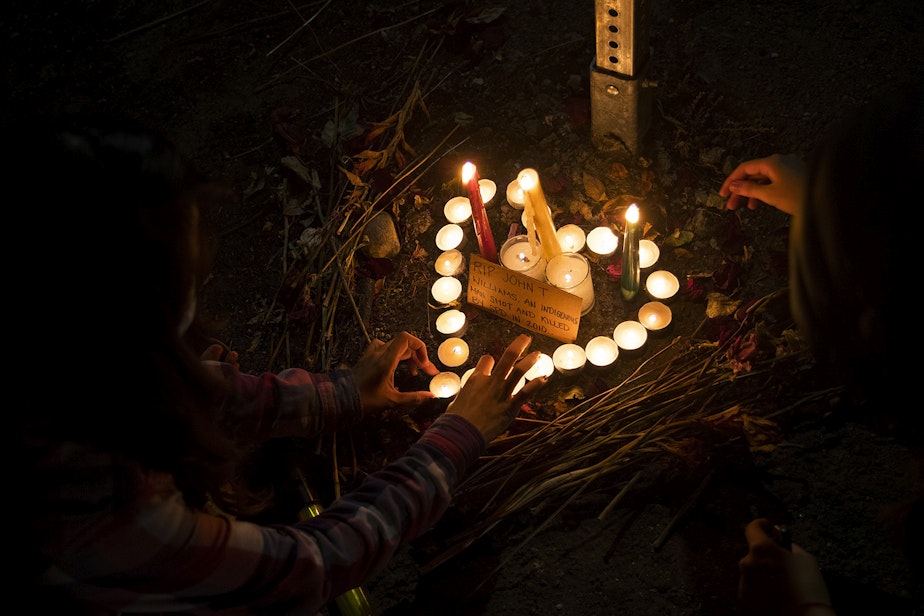
Best was not home when the protesters arrived in Snohomish, but her neighbors were, and took immediate notice of these outsiders.
They quickly barricaded the road with trucks. Some pulled out guns.
The incident drew national media attention after a Lynnwood newspaper wrote that hundreds of protesters "stormed" Best’s neighborhood. But video footage, and accounts from protesters, suggest a less exciting visit.
Cell phone video of one confrontation shows two protesters with their hands up, walking away from a black Escalade blocking the road. A man carrying what appeared to be an AR-15 follows behind them.
“We are here to peacefully assemble,” a man announces loudly on the video.
“Nope,” says the man with the rifle. “Peacefully assemble in somebody else's fucking neighborhood.”
In another video, a shiny blue truck blocks the road, and a woman announces that she has called the police on the protesters. One man says the protesters might break out windows, to which the protesters respond that they march every night, and that has never happened.
When Snohomish County Sheriff deputies arrived, around 8:30 p.m., few protesters remained, according to a statement from Sheriff Adam Fortney.

Chief Best issued a statement Monday, in a letter to Seattle City Council President Lorena Gonzalez and safety chair Lisa Herbold. This letter angered Everyday March organizers, who said Chief Best mischaracterized their peaceful protests as violent agitation.
“A residence of mine in Snohomish County was targeted by a large group of aggressive protesters late last night,” Best wrote. “My neighbors were concerned by such a large group, but they were successful in ensuring the crowd was not able to trespass or engage in other illegal behavior in the area, despite repeated attempts to do so.”
Best asked the Seattle council members to “stand up for what is right,” and called for an end to these visits to city leaders’ homes, before things “devolve into the new way of doing business by mob rule.” Gonzalez and Herbold have met with the Everyday Marchers at their homes.
Best posted the letter to the Seattle Police Department’s news blog, despite this incident not happening in Seattle.
A Seattle Police Department spokesperson would not provide details to support Chief Best’s claim that these protesters had attempted to commit “illegal acts.”
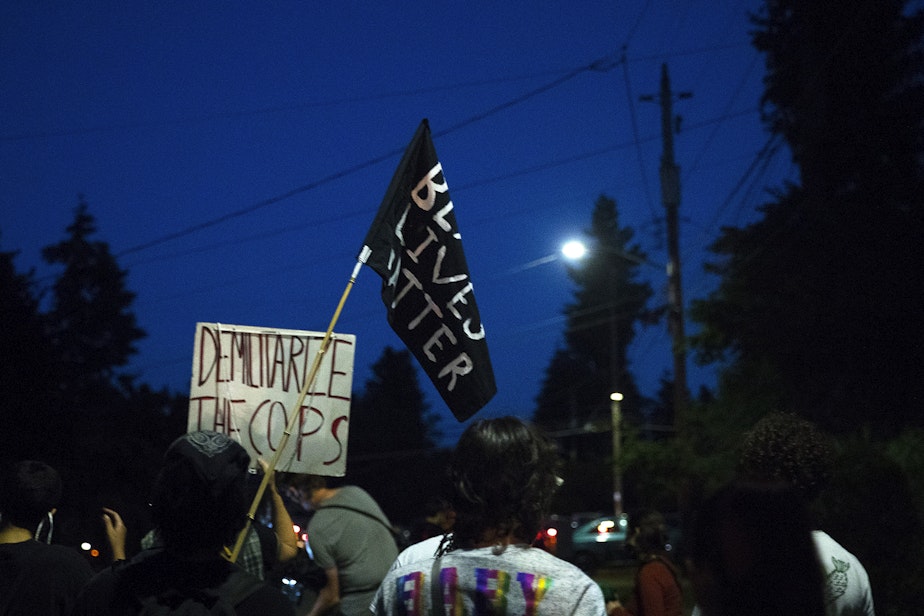
Chief Best said the protesters’ actions against elected officials were “out of line with and go against every democratic principle that guides our nation.”
Tealshawn Turner, who goes by TK, is one organizer of the frequent marches and was there on Saturday in Snohomish.
"The Black community put Chief Best in that office she's in right now ... we stepped up and stood up for her," Turner said in an Instagram video. "To see her response to what her neighbors did to us, is quite mortifying."
Turner said that if Chief Best wanted to defend the people in that Snohomish neighborhood, and not the protesters from Seattle, she should take up employment there.
The encounter highlights a rift between the values of those who live in rural Washington state, where Chief Best lives, and those who reside in the area she serves.
“They were dressed in black, pretty much with bandanas and stuff,” said Susan Kelley, one of Best’s neighbors. “They wouldn't fit in with the kids around here.”
The neighbors said the protesters did not step onto their property, remaining in the road.
One neighbor, who drove a vehicle into the roadway to stop the line of cars, said the protesters appeared organized. “Their cars were numbered,” the neighbor said, asking not to be named. “They had walkie-talkies.”
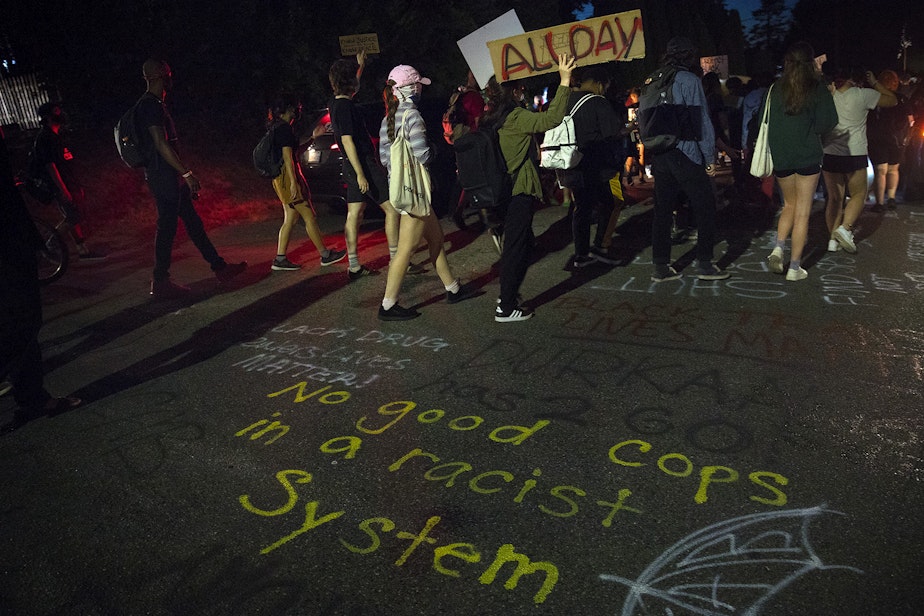
These were safety measures. They had already lost one of their own, 24-year-old Summer Taylor, when a man drove his car through the marchers who had occupied Interstate 5 on July 4. They keep marchers safe by surrounding them with cars.
Another neighbor, a mom of 10 who lives on Chief Best’s street, said the cars concerned her.
“I looked down the line of cars, and I saw a megaphone … and that's when it clicked, and I knew who they were coming for,” she said. She asked not to be named. “I knew they were up to no good.”
She continued: “I knew exactly what was going on. It's all over the news. It's happening everywhere. And it's the reason that it's happening is because nobody's standing up to it.”
The woman said the protesters didn’t proceed past her house, which is four and a half Seattle city blocks from Chief Best’s home.
“The agenda is not to just defund the police,” the woman’s husband said. “I believe that the agenda just keeps going and going until America is you know, diminished and compromised.”
On Tuesday evening, the Everyday March traveled to councilmember Debora Juarez’s home in Victory Heights, in north Seattle.
They came with a brass band, and the sounds of clarinet, drums and saxophone drew out neighbors. The marchers chanted Juarez’s phone number and greeted neighbors with a flier of their five demands.
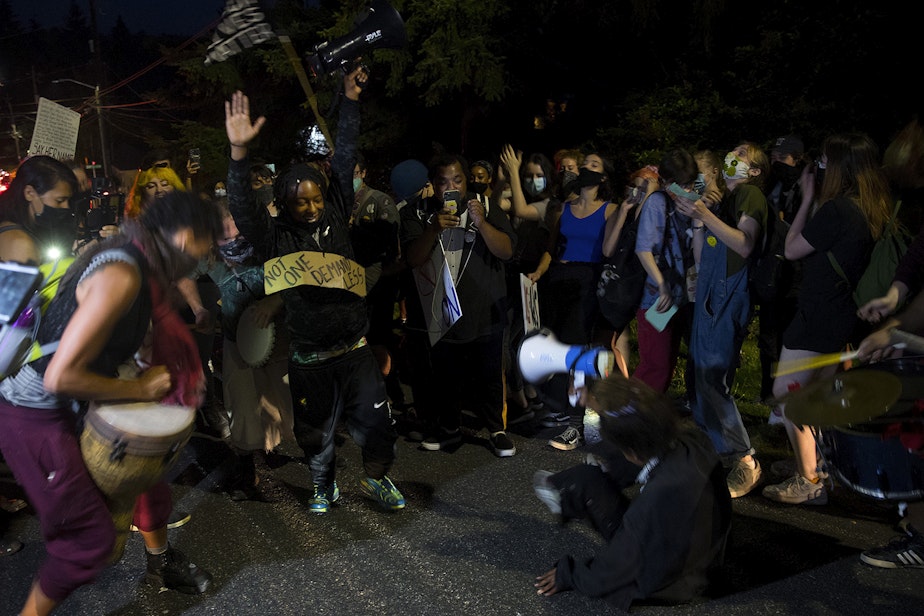
Their demands are: Defund Seattle Police by at least 50 percent; invest money into Black communities; amnesty for protestors; no new youth jail now, not in five years; and that Seattle Mayor Jenny Durkan should resign.
“Let your neighbor know that Black Lives and the demands matter to YOU! Your representative MUST be expected to do exactly that: represent you,” reads the mint green flier.
Juarez didn’t come outside that night. Her daughter did, however, standing on the lawn, a "Black Lives Matter" sweater tied around her waist. The Everyday Marchers said, chanting, they would be back, because their earlier attempts to reach Juarez hadn’t worked.
Before they departed for the night, after marching for four hours and with plans to gather and march again the next day, Turner explained the importance of showing up, everyday.
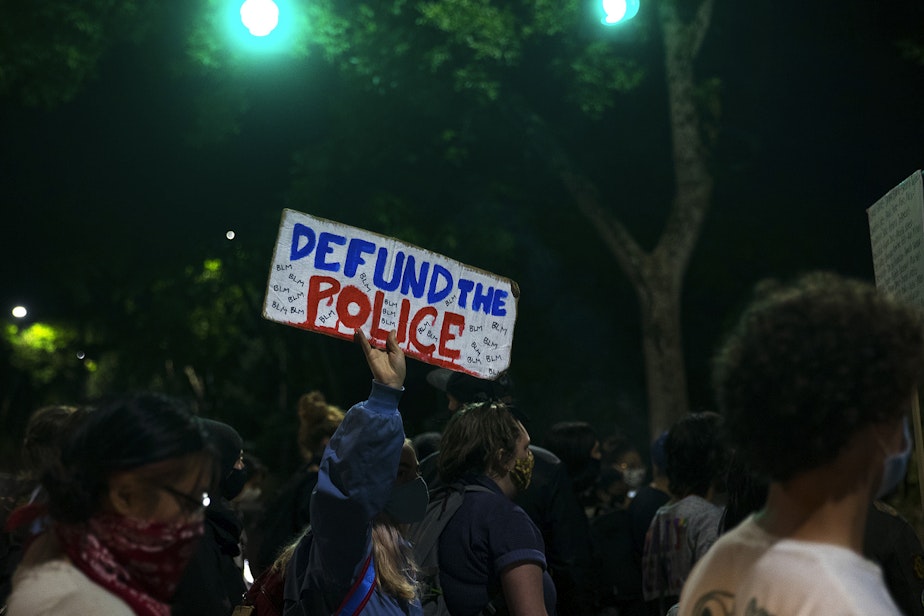
"It is on us — It is our duty, our obligation, our responsibility to come out here and stand up for the next generation. You have to speak life into these children. It's imperative. Especially Black children, they've been put down so much, somebody needs to build them back up and speak life into them and that is on us."
Meanwhile, back in Snohomish, a sheriff’s deputy patrolled the dead-end road where Chief Best lives, protecting the neighborhood lest the Everday March return.

